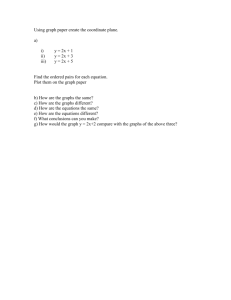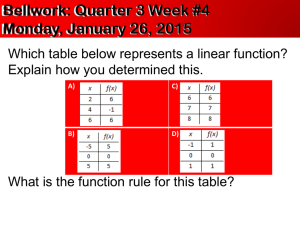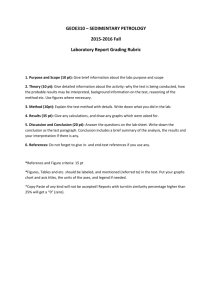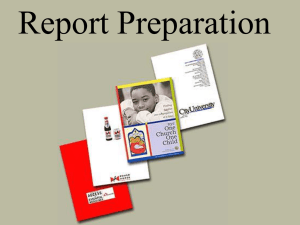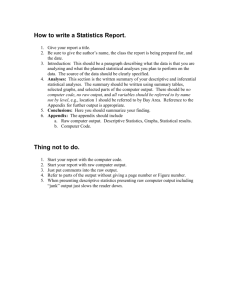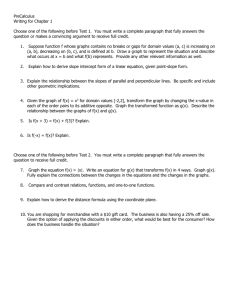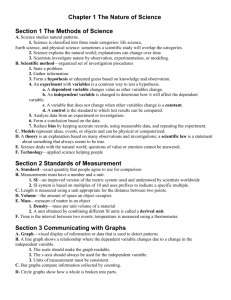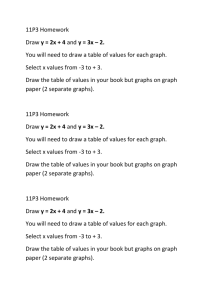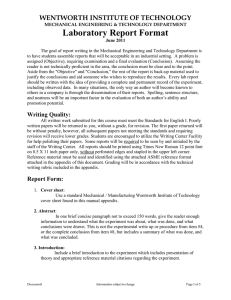Physics 201L Formal Lab report Hints and Guidelines
advertisement
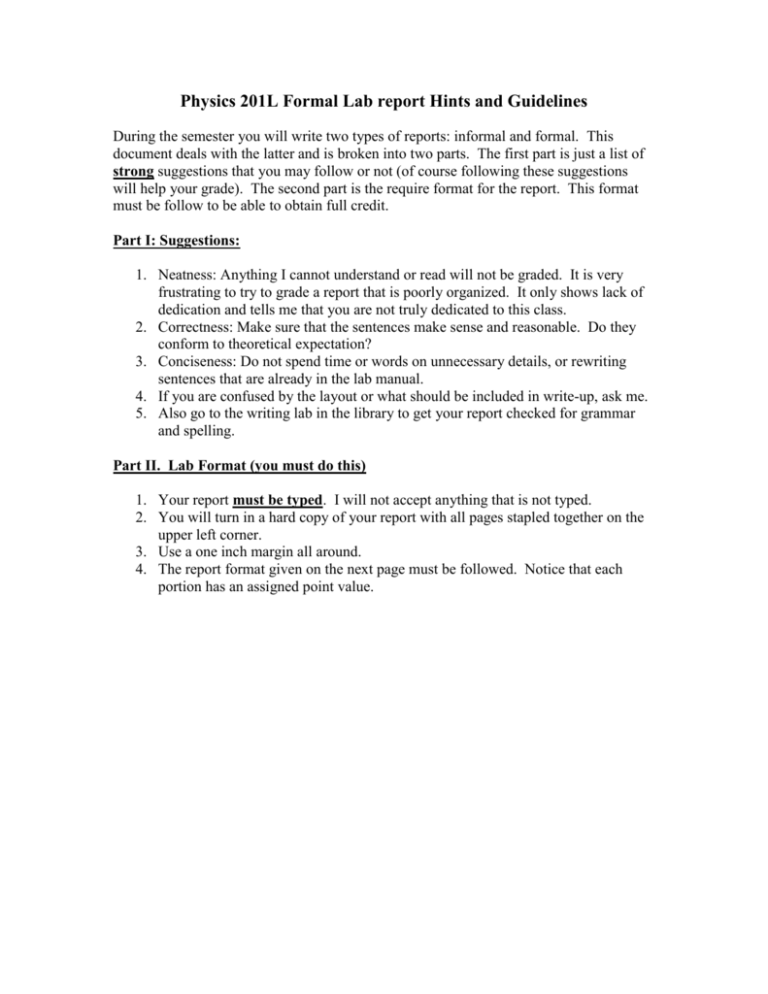
Physics 201L Formal Lab report Hints and Guidelines During the semester you will write two types of reports: informal and formal. This document deals with the latter and is broken into two parts. The first part is just a list of strong suggestions that you may follow or not (of course following these suggestions will help your grade). The second part is the require format for the report. This format must be follow to be able to obtain full credit. Part I: Suggestions: 1. Neatness: Anything I cannot understand or read will not be graded. It is very frustrating to try to grade a report that is poorly organized. It only shows lack of dedication and tells me that you are not truly dedicated to this class. 2. Correctness: Make sure that the sentences make sense and reasonable. Do they conform to theoretical expectation? 3. Conciseness: Do not spend time or words on unnecessary details, or rewriting sentences that are already in the lab manual. 4. If you are confused by the layout or what should be included in write-up, ask me. 5. Also go to the writing lab in the library to get your report checked for grammar and spelling. Part II. Lab Format (you must do this) 1. Your report must be typed. I will not accept anything that is not typed. 2. You will turn in a hard copy of your report with all pages stapled together on the upper left corner. 3. Use a one inch margin all around. 4. The report format given on the next page must be followed. Notice that each portion has an assigned point value. Report Format: The following format must be followed for full credit. 1. Title Page: The following information must appear all by itself on the first page. 1. 2. 3. 4. 5. 6. 7. The title of the experiment Your name The name of your partners, if any. The date the experiment was performed. Due date Course name. Instructors name. 2. Abstract: It should be short, state what you are going to do in the lab, and provide some general overview so a student who has not yet done the lab next year will know what you are doing. 3. Equipment: This is a list of the equipment use for the experiment. You should only list the actual equipment that you used. 4. Procedure: List the necessary steps to perform the experiment. A year from now anyone should be able to read this list of steps and perform your experiment. Remember what is obvious to you know, may not be obvious to someone else a year from now. 5. Data: Only measured values during the experiment should be included here. Present the raw collected data, in tabular form if at all possible. Include units for each quantity. 6. Sample Calculations: Show one sample of each major calculation performed to obtain the results. 7. Graphs: I would prefer that you do not embed graphs on this part of the report. Include your full page graphs as part of the appendix section. Here just include a list of the graphs on the appendix page and where they are located. For example: 1. Appendix A: Velocity vs. Time graph 8. Results: Here you will use tables to list all your results. As always unit are critical. 9. Error Analysis: In a single paragraph comment on the accuracy and precision of the apparatus. Errors are not “mistakes”. They arise because the apparatus and/or environment inevitable fails to match the “ideal circumstances” assumed when deriving the equations. Two principal sources of error are: Physical Phenomena similar to the phenomena measured that affect the measured quantity, like unaccounted friction. Limitations of the observer, the analysis and/or the instruments. For example parallax errors when reading a meter stick. Here also calculate you percent error (if you have a theoretical value), or you percent difference if you have to values that you are comparing. 10. Conclusion: Restate your results, including uncertainty in any numerical results. Tell me what your results demonstrate. Include here recommendations for improvements in technique and/or analysis. 11. Appendices: Here include a section with you full page graphs print outs. The answers to any questions in the lab manual should be included here. Finally, any other relevant information (if available) to the experiment that did not belong to any of the previous sections of the report. Grade Sheet: This a sample of the grade sheet that you will receive back with your report. The point values may be adjusted depending on the experiment. 1. Title page: 2. Abstract: 3. Equipment: 4. Procedure: 5. Data: 6. Sample Calculations: 7. Graphs/Appendix/Questions : 8. Results : 9. Error Analysis : 10. Conclussion : 11. Total : /5 /5 /5 /10 /15 /10 /20 /10 /10 /10 /100
